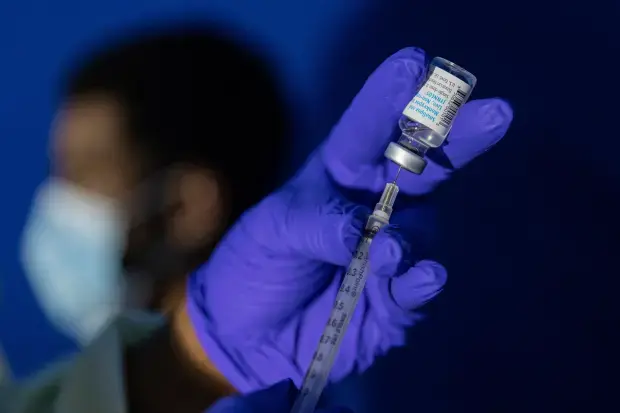After a more contagious strain of the virus was found in 16 African nations, the World Health Organization (WHO) declared a worldwide emergency and the European Center for Disease Prevention and Control (ECDC) revised its advisory.
The outbreak of the strain - called clade 1b - was first detected in the Democratic Republic of Congo. The endemic form of the virus, clade 1, has also been spreading throughout Africa.
According to officials, there have been over 17,000 confirmed instances of mpox across Africa this year, along with at least 571 deaths. The totals surpass those of the previous year.
Following the discovery of a clade 1b strain of mpox case in Sweden, the UK has been ready for cases. The illness, once called monkeypox, is a viral infection that results in lesions filled with pus and symptoms similar to the flu. Although usually not deadly, it can.
It is passed on through close physical contact and symptoms include a high temperature, headache, muscle aches, backache, and a rash.
Following its latest risk assessment, the ECDC said it is "highly likely" Europe will have "more imported cases of mpox caused by the clade I virus currently circulating in Africa".
It therefore increased its risk level assessment from "low" to "moderate" in relation to the chance of sporadic cases appearing in EU countries.
However, the ECDC has said "strengthened surveillance and preparedness activities" as well as "robust healthcare" across Europe means the impact of mpox on the continent "will be low".
As part of measures to try and prevent the spread of the virus, the public health body is also advising travellers to "epidemic areas" to "consult their healthcare provider or travel health clinic regarding eligibility for vaccination against mpox".
Pamela Rendi-Wagner, director of ECDC, said: "As a result of the rapid spread of this outbreak in Africa, ECDC has increased the level of risk for the general population in the EU/EEA and travellers to affected areas. Due to the close links between Europe and Africa, we must be prepared for more imported clade I cases."
Meanwhile, the WHO is due to host an emergency meeting to discuss ways to ensure fair global access to tests, treatments, and vaccines for the virus.
It comes as a Red Cross and Red Crescent official said far more diagnostic kits, treatments and vaccines need to be shipped to Africa to respond adequately to the outbreak of the new strain of mpox there.
Shares in pharmaceutical companies producing and developing mpox vaccines rose on Friday.
Dr Jean Kaseya, the director general of Africa Centres for Diseases Control and Prevention, told Sky News there are cases in 16 countries in Africa, including DR Congo, where the outbreak was first spotted.
"For the first time, we have countries like Ivory Coast, Kenya, Rwanda and Uganda reporting cases," he said.
Burundi, Central Africa Republic, South Africa, and Nigeria have also detected cases, the WHO said.
Meanwhile, Pakistan confirmed on Friday a case of the mpox virus in a patient who had returned from a Gulf country.
It is not clear whether it was of the new variant or of the clade that has been spreading globally since 2022.
China said earlier on Friday it plans to monitor people and goods entering the country for mpox for the next six months.

_8.jpg)

_7.jpg)




.svg)


